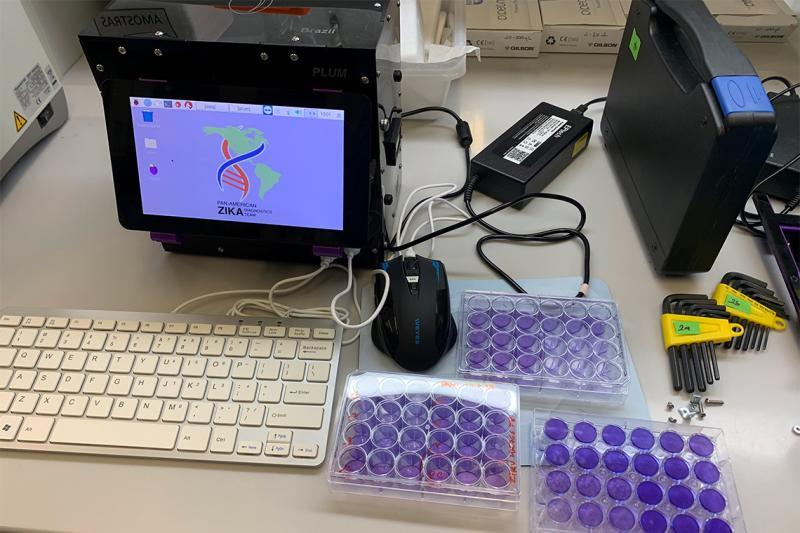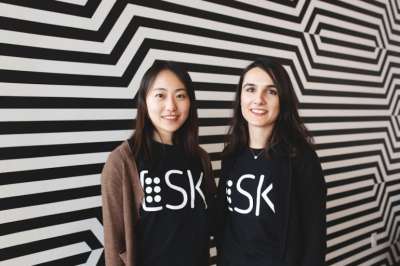May 3, 2022 | Alumni
U of T startup LSK Technologies acquired by Nicoya to boost 'lab-quality testing without the lab': BetaKit
By Alyson Bruce

U of T alumni startup LSK Technologies built a synthetic biology-based diagnostic platform that could provide rapid, low-cost patient testing for Zika and other infectious diseases (photo courtesy of Livia Guo, LSK Technologies)
Nicoya Lifesciences, which provides advanced analytical instruments to researchers in the biotech and pharmaceutical industries, has acquired fellow University of Toronto startup LSK Technologies, reports BetaKit.
Spun out of the University of Toronto, LSK offers“lab-quality testing without the lab.” The financial terms of the transaction, which will see Nicoya acquire LSK’s team, tech, and customers, were not disclosed, reports BetaKit.

LSK Technologies Inc. (LSK) is a startup founded by U of T alumni Seray Çiçek (BASc 2017, MSc 2020) and Yuxiu (Livia) Guo (BSc 2017 NEW, MSc 2020) with professor Keith Pardee (PhD 2010). The trio invented their portable diagnostic devices to help strained health-care systems in remote Latin American communities meet the threat of the Zika virus.
When the coronavirus pandemic hit in 2020, they quickly expanded their platform to diagnose COVID-19 in areas without adequate lab facilities.
LSK joined U of T Entrepreneurship hubs UTEST and H2i in 2019 to help get their startup off the ground. “They were really helpful in shifting our gears from academia to business,” says Çiçek. “They supported us in shaping our company from legal, IP and go-to-market strategy perspectives as well.”
Both hubs also assisted with vital networking, UTEST through access to MaRS and Life Sciences Ontario resources and H2i to medical regulatory experts and angel investors. “They were advocates for our startup,” says Guo, the company’s COO. “When we had to present, they would help us to polish our pitch, which was really helpful for us to improve our results.”